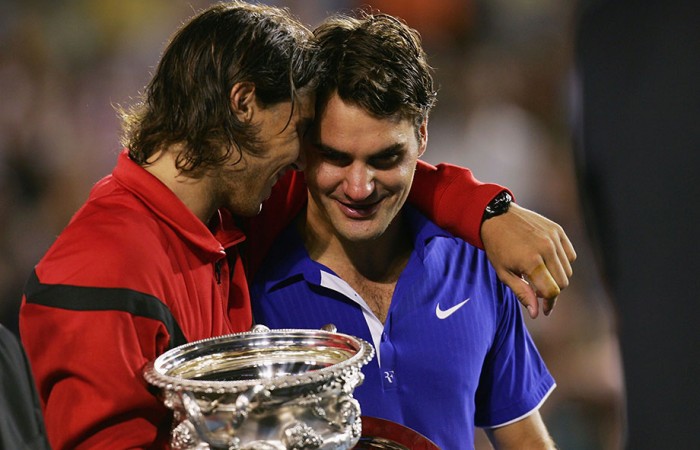How to cope with a loss
Some can shake off a loss quickly, while others can't get it out of their head. We all cope with loss differently but what's the best way to deal with an 'L'?
Melbourne, 29 June 2013 | Australian Tennis Magazine

Everybody loves to watch a fight-to-the-bitter-end competitor and every player will tell you there’s no better feeling than walking away from the court with a win. At the opposite end, losing can be heart-wrenching – especially when you know how hard you’ve worked for victory.
But even if defeat is a bitter pill to swallow, it’s also an inevitable part of competing. Consider that of the 128 players competing in a Grand Slam, 127 will have a loss to cope with before the tournament’s end – which highlights the fact that even the world’s best players experience loss on a regular basis.
While some players can shake it off quickly, others will dwell on a loss for hours, perhaps even days. But while reactions to losing are an individual thing, consider some questions that apply to all athletes.
Of course. There’s plenty at stake and most players will have worked hard for their victory. But give yourself a time limit. Dwelling on the loss is not only counter-productive, but will increase the pressure you place on yourself when you next step on court.
Even disappointment – an understandable emotion – can be a positive thing. While you’re experiencing that hollow feeling, also think about any weaknesses that you can improve on for next time. And by using it as motivation for practice, you’ll be hungrier and better prepared when that next time comes around.
It’s a question that all athletes ask themselves after a loss – and remember that in many cases, the answer is nothing. There are times when you will have simply come up against a better opponent. If you can identify an aspect of your game that needed improvement then you’re already learning from the loss – which means that it wasn’t a total loss after all.
The only thing worse than a bad loss, perhaps, is a bad loser. So take a lesson from world No.1 Rafael Nadal, who shows as much class in losing as he does in winning. At Australian Open 2011, refusing to blame a hamstring injury for his quarterfinal exit to David Ferrer, Nadall commented “I prefer to talk about the match. I think he played at a very high level. I just congratulate him and wish him all the best for the semifinal,” said the world No. 1, refusing to expand on his injury problems. “You know what, for me is difficult come here and speak about. In Doha I wasn’t healthy. Today I have another problem. Seems like I always have problems when I lose, and I don’t want to have this image no?”